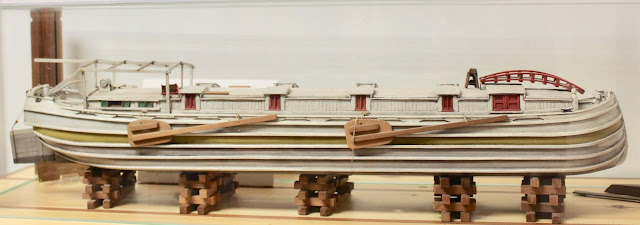Soldiers Departed for War on Chenango Canal
The Chenango Canal played an important role in the transportation of troops in times war. On May 13, 1846, the Congress of the United States declared war against Mexico that grew out of a dispute over the boundary line between the two countries. The annexation of Texas sparked the dispute. Volunteers quickly responded when the call came for troops.
In Chenango county, Kimball H. Dimmick, a lawyer, was elected Colonel of the 105th Infantry, New York Militia, in 1840. Two years later, he was unanimously elected Brigadier General, replacing Hendrick Crain, who resigned. He was then only 30 years of age. As soon as war was declared he organized a company of volunteers and by August 1, 1846, they started for the front in far-off California.
At 7 a.m. the company of about 50 fresh troops formed in front of Colonel Noyes’ Hotel (later the American Hotel) and headed to nearby DeForest’s Basin where the packet boat Vandalia, Captain Merrill, was waiting to transport them to Utica. The basin was an enlargement of the canal and its south bank was the later location of the Chenango Telegraph printing office.
A large concourse of citizens were at the dock and after a half hour of “adieus” from relatives and friends, the boat glided out of the basin. At North Norwich, in keeping with military protocol of the day, Theron R. Per Lee was unanimously elected second lieutenant. They then proceeded by train to Fort Plain where they were joined by other troops from Otsego County.
Arriving in New York, the company was sent to Fort Columbus, where they were mustered into the service of the United Staes. They became Company K of the Seventh Regiment of New York Volunteers, commanded by Colonel J.D. Stevenson. They remained in camp until September 22 when they were ordered to strike their tents and go aboard transports that sailed “around the horn” to California. - Chenango Semi Weekly Telegraph, Norwich, April 22, 1891 and January 1, 1893.
Scene painted by the late Robert Ward depicts 114th Regiment, New York Volunteers, departing Norwich on canal boats in 1862. Painting is on display
at the Chenango County Historical Society Museum in Norwich, N.Y.
Binghamton Daily Republican
Tuesday, September 9, 1862
Arrival and Departure of the 114th Regiment at Binghamton
Colonel E. B. Smith’s regiment arrived at this place, on Sunday evening last, in canal boats from Norwich, the soldiers remaining on the boats. On Monday morning, by invitation of Colonel Ireland, of the One Hundred and Thirty- Seventh, they marched over to the barracks for breakfast.
After breakfast they marched back to the depot, where they deposited, in the cars awaiting them, their knapsacks, &c., and awaited the arrival of Colonel Ireland’s regiment, which escorted them to the from of the Court House, where an address of welcome was delivered by Hon. Daniel S. Dickinson, which was responded to by Colonel Smith. The speech and response, were eloquent and patriotic. Mr. Dickinson welcomed his old friends [rom his native County of Chenango, in the name of all classes, in the name of patriotism and of their country, and expressed his belief and hope, that a good account would be heard from the regiment.
Colonel Smith in his remarks, alluded handsomely to Colonel Ireland, and expressed a hope that the regiments would he Brigaded together, and that Broome and Chenango would stand shoulder to shoulder in the defense of their country’s flag.
The sight of two Regiments in uniform and the large concourse of our citizens, ladies and gentlemen, in carriages and on foot, presented a military pageant never before witnessed in Binghamton. The Regiment got off about 10 o’clock in good order in ample cars amid the shouts and cheers of the People.
Colonel Smith is a fine looking officer, and has a clear, ringing voice of command. We expect to hear a good account of him.
Clark, the war vocalist., favored the vast crowd with the ‘Sword of' Bunker Hill and the ‘Death of Warren.’
Three cheers were given for Mr. Dickinson, Colonel Smith, Colonel Ireland, Clark, and the boys generally. The sight of two regiments in uniform, and the large concourse of our citizens, ladies and gentlemen, in carriages and on foot, presented a military pageant never before witnessed in Bing-
hamton.
The regiment got off about ten o‘clock, in good order, and in ample cars, amid the shouts and cheers of the people. Both regiments presented a fine appearance, and the whole affair was creditable to them and to our people.




Comments
Post a Comment